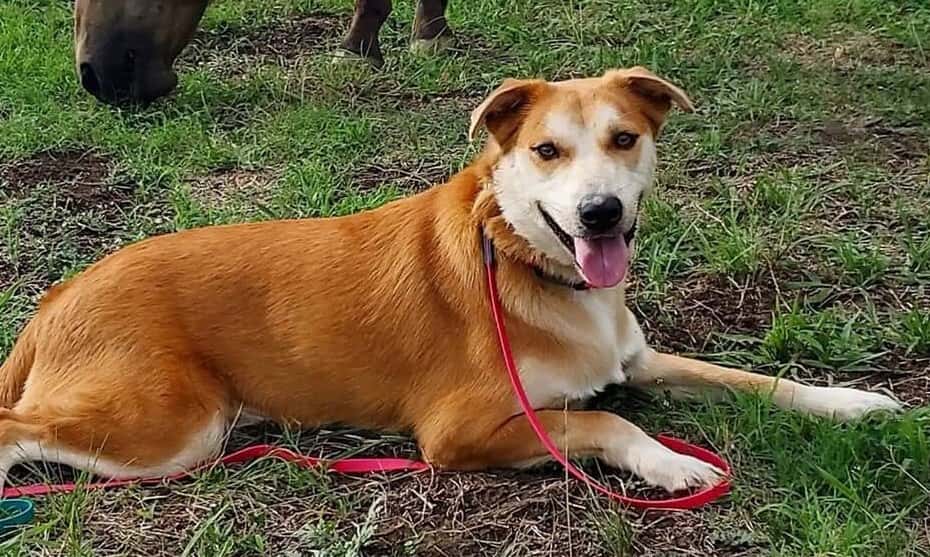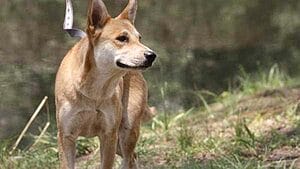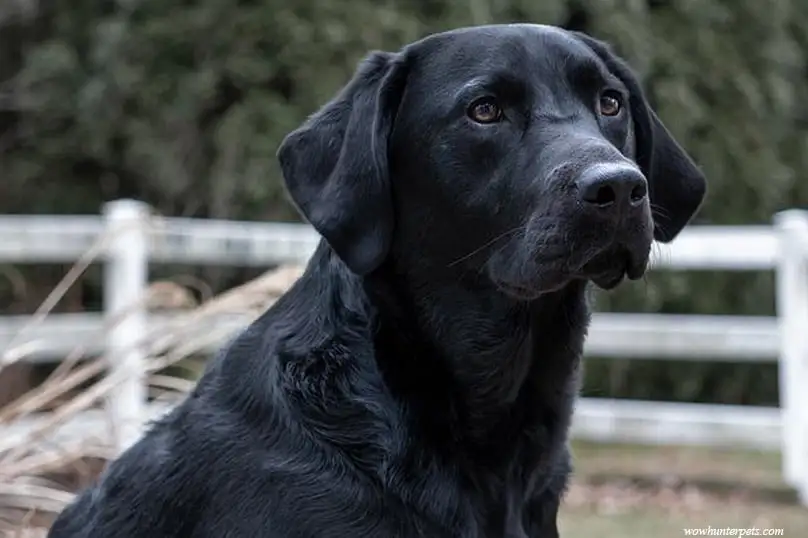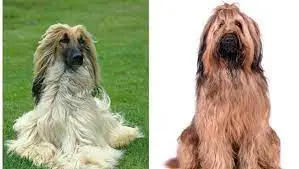Carolina Dog – Mixed Dog Breed Characteristics & Facts

The Carolina Dog is a rare, primitive dog breed that is native to the United States and is still fairly new to domestication. They are known for being exceptionally clean dogs and are medium in size, agile, and independent. The American Dingo, Dixie Dingo, Yellow Dog, and Yaller are other names for the Carolina Dog. In some areas of Georgia and South Carolina, they can still be found in the wild.
They were once feral and spent hundreds of years living in the Southeast. Although they won’t likely show much affection, Carolina Dogs will develop strong bonds with their owners. When you are training them, exhibit strong leadership and let them know you are in charge. Although they might appear reserved and wary of strangers, they don’t frequently act aggressively.
This breed of dog is a pack dog through and through, and they would thrive in homes with both people and other dogs, forming close relationships with both. Due to their high prey drive, you must keep a close eye on them when they are around other small animals. They adore large households with yards for running around in and large families.
Carolina Dogs are affectionate and playful with children and incredibly devoted to their owners. For your medium-sized Carolina Dog to get a restful night’s sleep, Petscaretip suggests this dog bed. To help your dog burn off some of its high energy, get them this fetching toy! For a complete list of Carolina Dog breed characteristics, see below!
Carolina Dog Mixed Dog Breed Picture






Carolina Dog – Mixed Dog Breed Characteristics
| Adaptability | *** |
| Adapts Well To Apartment Living | ** |
| Good For Novice Owners | ** |
| Sensitivity Level | ** |
| Tolerates Being Alone | * |
| Tolerates Cold Weather | **** |
| Tolerates Hot Weather | **** |
| All Around Friendliness | *** |
| Affectionate With Family | ** |
| Kid-Friendly | *** |
| Dog Friendly | ***** |
| Friendly Toward Strangers | ** |
| Health And Grooming Needs | **** |
| Amount Of Shedding | **** |
| Drooling Potential | ** |
| Easy To Groom | **** |
| General Health | ***** |
| Potential For Weight Gain | **** |
| Size | *** |
| Trainability | *** |
| Easy To Train | ** |
| Intelligence | **** |
| Potential For Mouthiness | ** |
| Prey Drive | ***** |
| Tendency To Bark Or Howl | * |
| Wanderlust Potential | *** |
| Physical Needs | **** |
| Energy Level | **** |
| Intensity | ***** |
| Exercise Needs | **** |
| Potential For Playfulness | *** |
Vital Stats:
| Dog Breed Group: | Hound Dogs |
| Height: | 18 to 20 inches |
| Weight: | 33 to 55 pounds |
| Life Span: | 12 to 15 years |
Highlights
- The coat of the Carolina Dog typically comes in a range of hues, including cream, tan, black, brown, and red. They frequently feature two or more of these colors in combination.
- They typically have short, dense coats, are very clean, and groom themselves, much like cats, though they are not a good choice for allergy sufferers.
- To keep fit, the Carolina Dog needs to exercise for at least 60 minutes each day.
- Ivermectin, a component of mite and heartworm medications, may be sensitive to the Carolina Dog breed, according to recent studies. Before using these medications, consult your veterinarian.
- Being a pack dog, the Carolina Dog shouldn’t be left alone. This puppy would not do well in isolation.
- The Carolina Dog is a strong dog who bonds and enjoys playing with children, especially those they view as members of their family. Playtime must always be supervised.
- Despite their love for other dogs, this breed has a prey drive ingrained in its DNA, so exercise caution around other small animals.
History
The Asian pariah dog and the Carolina Dog are thought to have shared a common ancestor. They crossed the Bering Strait with traders 9,000 years ago and slowly moved southward until they reached the southern United States. They have been spotted in some areas of Georgia and South Carolina for the past few hundred years, where they have been living in the wild. Eventually, the Carolina Dog was rediscovered and domesticated.
They go by the names Dixie Dingo, American Dingo, Yaller, and Yellow Dog as well. Ancient Native American Indian burial grounds have yielded bones that resemble those of the Carolina Dog, indicating that these animals were probably kept by American Indians as pets. In the 1970s, the American Kennel Club recognized the Carolina Dog as a distinct breed. Another way to identify the Carolina Dog is by:
- AKC – American Kennel Club Inc.
- ACR stands for American Canine Registry.
- APRI is short for American Pet Registry, Inc.
- Americans for Rare Breeds of Animals.
- Carolina Dog Association (CDA).
- Continental Kennel Club (CKC).
- DRA is short for Dog Registry of America, Inc.
- National Kennel Club (NKC).
- United Kennel Club (UKC).
Size
The Carolina Dog should measure between 18 and 20 inches at the shoulders and weigh between 30 and 55 pounds. Nevertheless, a lot of dogs can be smaller or larger than what is typical or average for their breed.
Personality
The Carolina Dog is extremely devoted to its owners and will develop close relationships with them, but they are not overly affectionate with kisses and cuddles. They make excellent watchdogs because they are suspicious of strangers and may display this suspicion. Despite their high level of intelligence, Carolina Dogs are also stubborn by nature. Although they might be difficult to train, they do have a desire to please.
Use positive reinforcement and exercise patience. The Carolina Dog is additionally characterized as being strong, hushed, kind, courageous, cunning, and resourceful. They have been independent for hundreds of years, making them natural hunters with a wide range of climatic and lifestyle adaptations. Being a pack dog, the Carolina Dog shouldn’t be left alone. This puppy would not do well in isolation.
Health
Overall, the Carolina Dog breed is in generally good health. They do not have the genetic disorders that many overbred dog breeds do today because they have lived in the wild for such a long time.
The dysplasia of the hip and elbow may be a minor issue. Ivermectin, a component of mite and heartworm medications, may be sensitive to the Carolina Dog breed, according to recent studies. You might want to do some research and possibly look for natural alternatives when treating them for fleas and ticks. For advice, consult your veterinarian.
Care
As with all dogs, you should continue to take your Carolina Dog to the vet on a regular basis in order to catch any health issues early. Your veterinarian can assist you in creating a care routine. To keep fit, the Carolina Dog needs to exercise for at least 60 minutes each day. Always keep fresh water on hand. These dogs are renowned for their cleanliness; they practically groom themselves like cats.
However, they’ll require assistance with their nails. Once or twice per month is usually enough to trim them before they get too long. It shouldn’t be making noises against the ground. In this case, your veterinarian or groomer can help. Maintaining the oral health of any animal is one of the most difficult tasks involved in pet care.
Your dog’s teeth need to be brushed at least three times per week. Your veterinarian can give you tips on how to properly brush your dog’s teeth and can also suggest dental chews.
Feeding
The ideal diet for Carolina Dogs should be high in protein and, if at all possible, closely resemble their natural diet. This breed may do best with one daily feeding of homemade food or premium dog food. As for serving sizes and frequency, consult your veterinarian. Carolina As dogs tend to gain weight when overfed, it’s important to follow a regular feeding schedule and avoid leaving food out all day.
Also limit the number of treats they receive. The Carolina Dog’s nutritional requirements will change from puppyhood to adulthood and will continue to change into their senior years, just like those of all dogs. There is far too much variation among individual dogs—including weight, energy, and health—to make a specific recommendation, so you should ask your vet for advice on your Carolina Dog’s diet.
Coat Design and Maintenance
The coat of the Carolina Dog typically comes in a range of hues, including cream, tan, black, brown, and red. They frequently feature two or more of these colors in combination. They typically have short, dense coats, are very clean, and groom themselves, much like cats, though they are not a good choice for allergy sufferers. As the seasons change, so will the coat.
Typically, it is denser in the winter and sparser in the summer. They frequently develop a pretty thick undercoat during the winter. Only when necessary should they take a bath. The Carolina Dog can fairly easily adapt to almost any climate because of their adaptable coat. Despite having lived in the wild, they still require a home and the company of their human pack.
Kids and other animals
The Carolina Dog is a strong dog who bonds and enjoys playing with children, especially those they view as members of their family. As a pack dog, the Carolina Dog will thrive in a home where there are other dogs.
Despite their love for other dogs, this breed has a prey drive ingrained in its DNA, so exercise caution around other small animals. Children should be taught appropriate dog behavior, and it is never a good idea to leave small children alone with any dog. Watch children and dogs playing together at all times.
Rescue Teams
Because Carolina Dogs are a relatively uncommon breed, it may be difficult to find rescues that specialize in them. You can always check with your neighborhood shelter, though, and you might want to consider contacting a rescue that accepts all breeds of dogs. Here are some things to look at:
- Foster-Wright Rescue.
- Pet Rescue by Angels Among Us.
Try the adoption page on Petscaretip, where you can look for dogs by breed and zip code!
Creator: PetsCareTip








